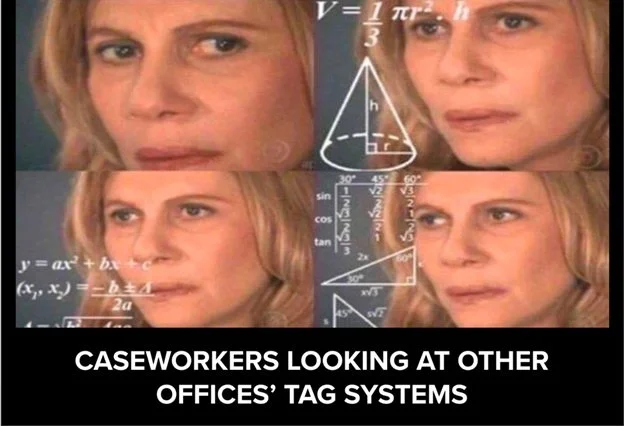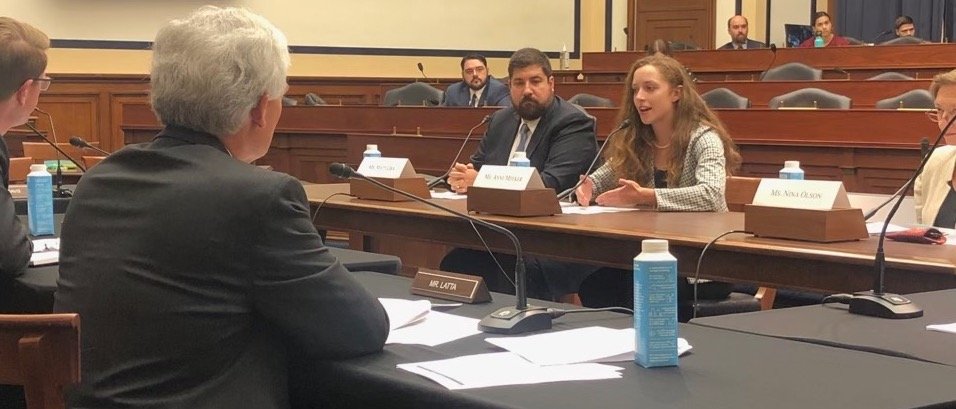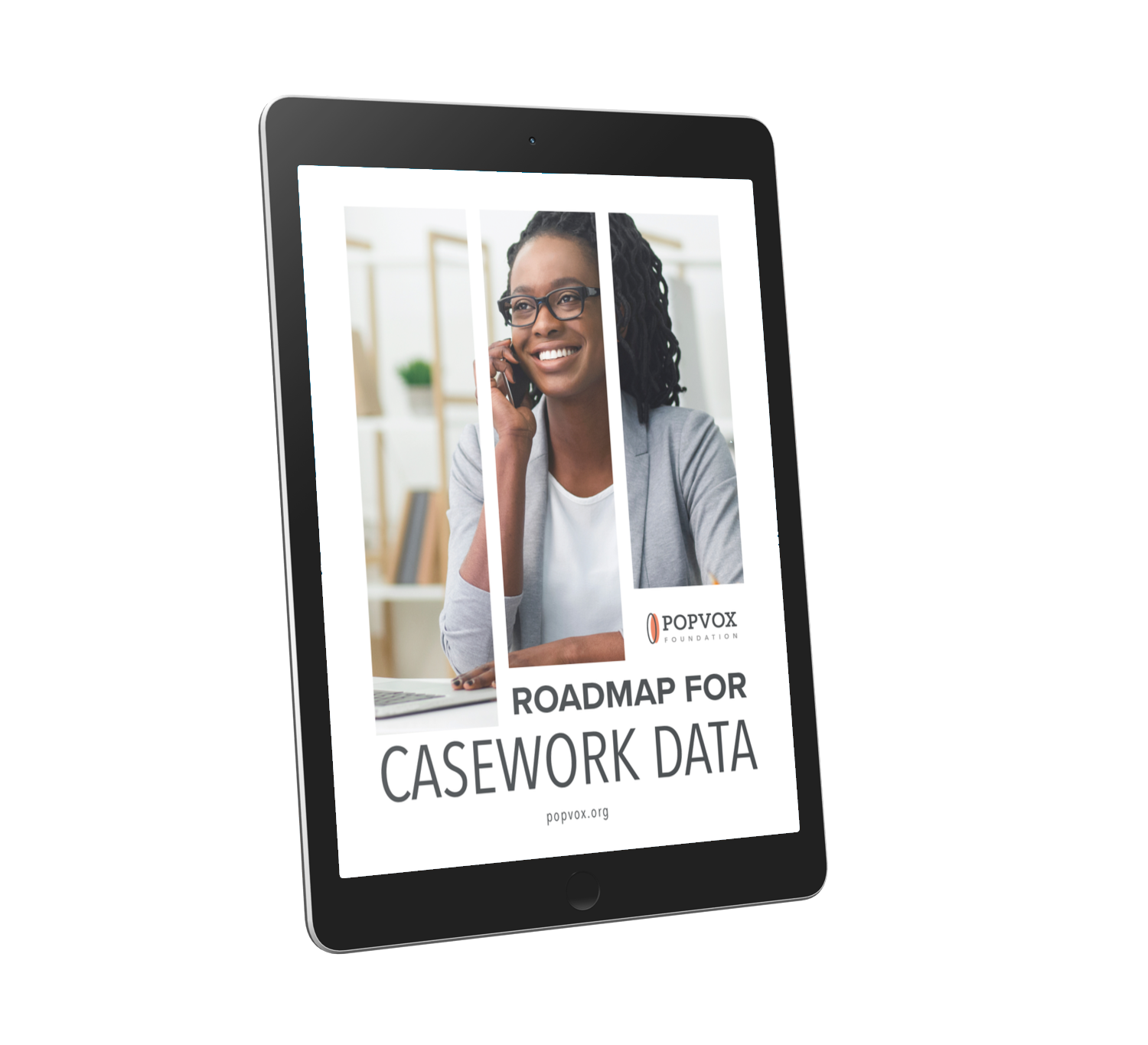The Long Road to Change: How Caseworkers Helped Build the Future of Congressional Data
A behind-the-scenes look at how one big idea became reality — and what it means for the future of casework
BY ANNE MEEKER
This week, I wanted to flag for you all one of the biggest, most exciting changes to how casework happens that might otherwise pass under your radar. This update also feels really personal for me, because I've had the privilege to be part of a lot of the conversations that have led to this update over the past few years. But it sounds a little bit weedy, so stay with me!
This week, the House Digital Services team, under the Chief Administrative Officer, at the direction of the Committee on House Administration's Subcommittee on Modernization and Innovation, released their unified data schema for Congressional casework tracking and analysis — this is the data system that will eventually feed into Case Compass, a dashboard for tracking anonymized, aggregate casework data to catch trends and help offices better understand their casework in context.
This is an enormous step forward for casework.
When I was a caseworker, one of the most frustrating things that I heard on a regular basis from agency liaisons was that what looked like a pattern in my caseload was a fluke. In such a small sample size, a few similar cases might just be an aberration — or they could be indicative of a larger pattern.
And even talking to those other offices, it was incredibly difficult to figure out if we were tracking the same things — because, as caseworkers know, every office has a different system for managing casework data, with their own categories, their own tags, and their own methods of counting.
For individual caseworkers, that's a pain. But for Congress as a whole, it prevents the institution from doing its job: identifying patterns in constituent experiences, understanding where agencies are struggling, and taking action to fix systemic problems before they affect thousands more constituents.
What the Case Compass data scheme does is create a standardized way for offices to track and categorize casework data — voluntarily and anonymously — so that for the first time, Congress can see the big picture of how federal agencies are actually serving the American people.
But the process of making change at the institutional level is long, and takes a lot of moving parts.
The story of how we got here spans nearly a decade:
Late 2010s, early 2020s: Caseworkers, uniquely among other Congressional staff positions, developed Caseworkers Assistance listservs and Teams chats to collaboratively share information, including trends and unusual activity in casework demand. The pandemic and Afghanistan withdrawal supercharged the importance of this type of real-time information sharing to help translate casework into oversight.
2022: The House Select Committee on the Modernization of Congress held a hearing on constituent services where I had the honor of testifying about the need for a unified casework data system, alongside former Taxpayer Advocate Nina Olson (who explained how TAS uses similar data to inform its recommendations to the IRS) and Matt Lira (on rebuilding trust through better constituent services) — based on my and many other caseworkers’ experiences sifting through these listservs for information.
POPVOX Foundation Managing Director Anne Meeker testifies before the House Select Committee on the Modernization of Congress.
December 2022: The Select Committee included Recommendation 172 in its final report, calling for "an optional system to allow offices to share anonymized constituent casework data and aggregate that information to identify trends and systemic issues."
July 2023: POPVOX Foundation released our white paper "Roadmap for Casework Data," establishing a framework for how this system could work:
December 2024: The Committee on House Administration's Modernization and Innovation Subcommittee reported that it had worked with House Digital Services to establish a pilot working group for what would become Case Compass.
Throughout 2024-2025: House Digital Services staff worked directly with caseworkers from both parties to understand how casework actually works in practice and develop the technical standards.
July 2025: The House Appropriations Committee recommended that the Chief Administrative Officer continue prioritizing Case Compass development.
This week: The draft unified data schema is officially released for additional feedback and refinement from caseworkers and other stakeholders:
Source: Github
What needs to happen next
Case Compass is a huge milestone, but it's just the beginning. Here's what needs to happen to make this project truly transformative:
Your feedback is essential. House Digital Services needs to hear from caseworkers, casework managers, and legislative staff about how well this data schema captures the reality of your work. Are there categories missing? Do the tags make sense for how you actually handle cases? Agency liaisons should weigh in too — they're the ones who'll be working with this data on the backend.
Shape the tools. Having standardized data is only valuable if it's presented in ways that are actually useful. HDS will need input on what dashboards, reports, and analytics would be most helpful for caseworkers managing their caseloads, legislative staff identifying oversight priorities, and committees understanding agency performance.
Build for the long term. Someone needs to own this project as it grows and evolves. That's why we've been advocating for the creation of a dedicated Casework Liaison Office under the CAO — an institutional home for supporting casework across Congress and managing projects like Case Compass.
Bring in the Senate. This is currently a House-only project, but casework problems don't stop at chamber boundaries. We need our Senate colleagues involved to create a truly comprehensive picture of how federal agencies serve constituents.
Casework in the Future
Today, I wanted to tell this full story so that you have a blueprint to think about how you would address some of the other changes that you would like to see for casework.
Caseworkers attending our events for years have heard me say over and over again: one of the biggest pieces of advice that I have for Congressional caseworkers is not to take casework as it is today as a given. Are you frustrated with the tools you have to do casework, the response you're getting from agencies, the Ethics rules that prevent you from doing referrals, or any other aspect of the professional practice of casework?
It can all be changed, and the publication of this data scheme is a prime example of how caseworkers can work with the institution to make casework more effective and more sustainable.
POPVOX Foundation’s Casework Navigator newsletter includes tools and tips to level up your casework, as well as the latest casework news and agency updates. Learn more at caseworknavigator.substack.com.




